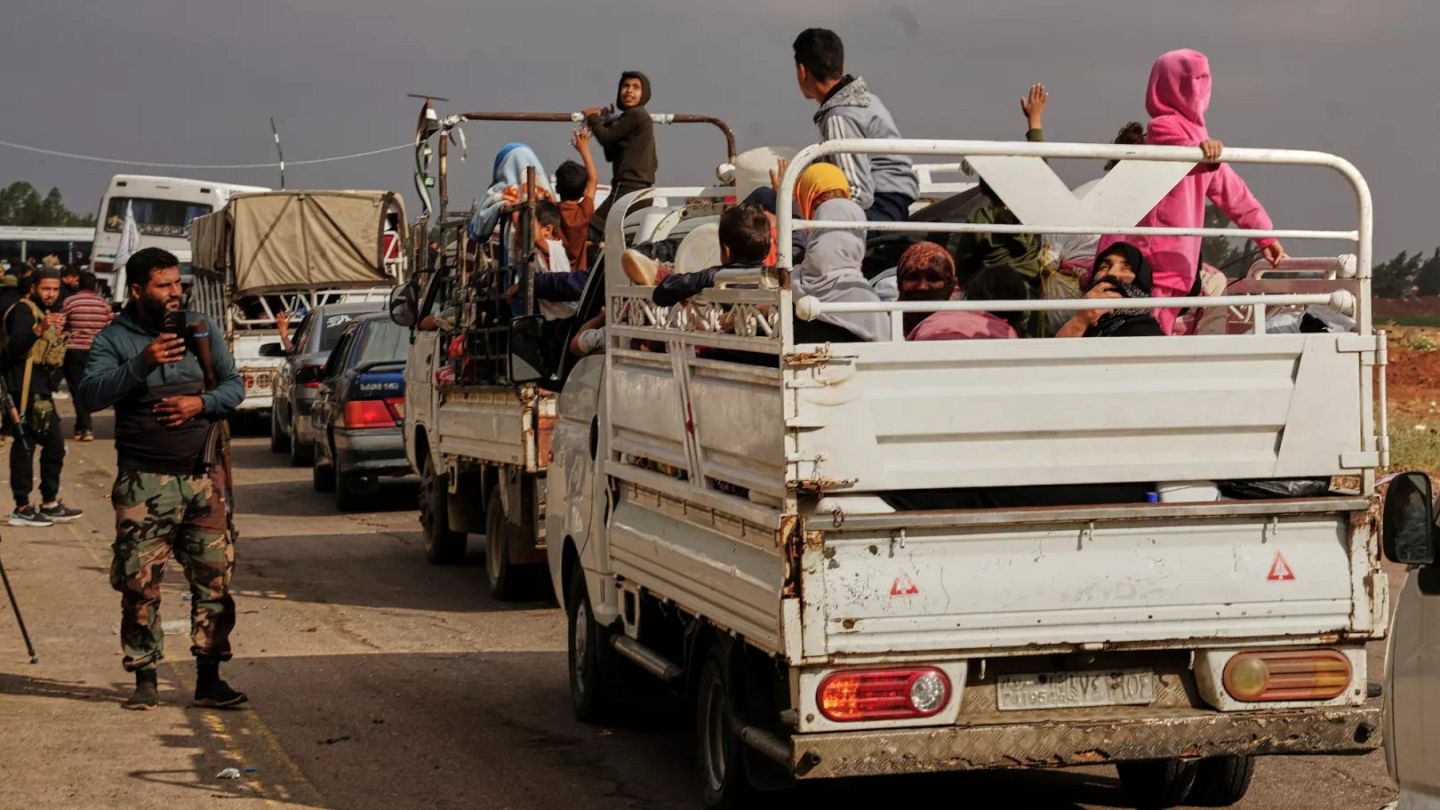Syrian forces evacuate Bedouin families out of Suwayda as shaky ceasefire holds
Syrian state media said on Sunday that the government had coordinated with some officials in Suwayda to bring in buses to evacuate some 1,500 Bedouins from the city.
The Syrian government started evacuating Bedouin families from the city of Suwayda on Monday, where a fragile ceasefire between the Druze minority and Bedouin fighters appears to be holding after a week of clashes. Violence between the Druze militia and Sunni Muslim clans has resulted in the deaths of hundreds and threatened to unravel Syria’s already fragile postwar transition.The clashes also led to a series of targeted attacks against the Druze community, followed by revenge attacks against the Bedouins.The UN International Organisation for Migration (IOM) said some 128,571 people were displaced in the hostilities that started with a series of attacks a week ago.Israel also launched dozens of air strikes on the Druze-majority Suwayda province, targeting government forces who had effectively sided with the Bedouins.Syrian state media said on Sunday that the government had coordinated with some officials in Suwayda to bring in buses to evacuate some 1,500 Bedouins from the city.Syrian interim Interior Minister Ahmad al-Dalati told the state-run SANA news agency that the initiative will also enable displaced civilians from Suwayda to return, as the fighting has largely ceased and efforts for a comprehensive ceasefire are ongoing.“We have imposed a security cordon in the vicinity of Suwayda to keep it secure and to stop the fighting there,' al-Dalati told the Syrian state-run news agency.”This will preserve the path that will lead to reconciliation and stability in the province."Bedouin families accompanied out of SuwaydaBuses filled with Bedouin families were accompanied by Syrian Arab Red Crescent vehicles and ambulances. Some families left on trucks with their belongings.Syrian authorities did not provide further details about the evacuation and how it relates to the broader agreement, following failed talks for a hostage swap deal on Saturday.However, the UK-based war monitor, the Syrian Observatory for Human Rights, said that as part of the agreement, Bedouin fighters would have to release Druze women they were holding captive and leave the province.US Special Envoy to Syria Tom Barrack who has been involved in negotiations between multiple countries, said that the perpetrators of hostilities on both sides need to be held to account and that an agreement should be reached to allow Syria's seven-month-old interim government to exert its authority and function fully after over a decade of conflict.“What’s happened is horrible. It’s unthinkable,” Barrack said in Beirut after meeting officials Monday.“They (Syrian authorities) need to be held accountable, but they also need to be given responsibility” to restore order.Bedouin fighters wait on the edge of the cityBedouin fighters had withdrawn from Suwayda city on Sunday and, alongside others from different parts of the country, stood on the outskirts while security forces cordoned off the area.An aid convoy of some 32 Red Crescent vehicles entered the city, though a government delegation with another aid convoy was turned away.After talks for a hostage swap fell through late on Sunday, the Observatory and activist groups in Suwayda reported hearing what they said were Israeli air strikes and helicopters over villages where some skirmishes took place between the Bedouins and the Druze.The Israeli military said it was “not aware” of any overnight strikes in Syria.Druze increasingly unsure about new governmentSyria’s interim President Ahmad al-Sharaa has tried to appeal to the Druze community while slamming the factions loyal to spiritual leader Sheikh Hikmat al-Hijri, who have been involved in the clashes.He promised to hold accountable perpetrators of targeted attacks and other violations.The country's Druze community largely celebrated the downfall of the al-Assad family that ended decades of tyrannical rule in Syria. While they had concerns about al-Sharaa’s possible Islamist rule, a large number wanted to approach matters diplomatically.However, Al-Hijri and his supporters have taken a more confrontational approach with al-Sharaa, unlike most other influential Druze figures. The numerous cases of attacks, which included killing Druze civilians and desecrating photos of religious notables, have made the Druze more sceptical of Al-Sharaa and less optimistic of peaceful coexistence.More than half of the roughly 1 million Druze worldwide live in Syria. Most of the other Druze live in Lebanon and Israel, including in the occupied Golan Heights, which Israel captured from Syria in the 1967 Mideast War and annexed in 1981.


